Food
Managing food supplies is a core aspect of survival in Farthest Frontier. Every town starts with some resources, based on the selected difficulty, but those will only last so long before they are consumed or spoil. A new settlement must find food, and quickly, if it’s going to last.
Thankfully, there are many avenues to providing for your people, ranging from gathering what nature provides to cultivating the land for crops and eventually baking bread. This variety will also be key to later upgrading your shelters.
Food Production
Nature’s Bounty
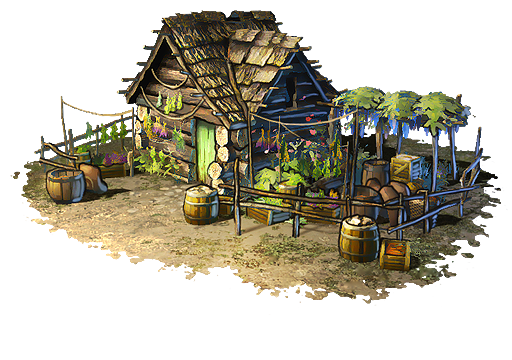
Nature, especially in the early game, provides many boons. Getting a field tilled and ready for planting crops takes a significant investment of labor, which may prove prohibitive in a town’s first year. Most early settlements will thus rely on what nature provides.
Even at this stage, there are several avenues to take in providing for your people. Foragers can gather herbs and berries to not only feed the village but also provide treatment if disease breaks out. Hunters can track wild game for meat and hides. Fishermen can take advantage of nearby bodies of water to catch fish.
To learn more about the various resources available in nature, stop by the Resources page.
Crop Fields
Your people have survived their first winter in the frontier. Now it’s time to think to the future. The advent of agriculture redefined humanity, taking us from a nomadic life to establishing permanent settlements with explosive population growth. It will serve you equally well in Farthest Frontier.
Crop Fields are a significant investment. Planning ahead is important; but the return is well worth it once your villagers are harvesting a variety of vegetables. Farming is also one of the most advanced parts of Farthest Frontier’s simulation, rooted firmly in historic farming logistics.
To learn more about farming and fields, stop by the Farming page.
Animals
If your people are fortunate enough, they will eventually be visited by a traveling merchant that has domesticated animals for trade. Purchase a couple cows, chickens, or goats from them and your people will be well on their way to cultivating a new source of food.
Cows and g goats must be kept in a barn, and chickens in a chicken coop, where villagers take care of their needs, let them out to graze in the warm months, and stock the barn with feed for the winter. There are a number of options for feeding farm animals: including hay, root vegetables, greens, and grains.
Healthy animals will reproduce and enable villagers to collect milk (or eggs!) from them. If you so choose, animals can also be slaughtered for meat, hides and/or tallow. Animals also generate waste which can be turned into compost for fields, improving their fertility. There are many benefits to keeping livestock!
Horses are another farm animal you can acquire from the Trading Post, but unlike cows, goats, and chickens, they are maintained primarily for military purposes. They can be used as a secondary food source by manually slaughtering them for meat.
Arborists
There may come a time when gathering berries by hand is not generating enough fruit for the village to stave off the debilitating effects of scurvy. Orchards are the answer to those growing needs.
Constructing an Arborist allows you to plant fruit trees: apples, peaches, and pears, which need to be within the building’s work area to be cultivated. Fruit trees take years to grow and require regular care and maintenance, but the result is healthy fruit to diversify the town’s diet.
Fruit can be preserved to dramatically extend shelf life.
Bread
Grains are an excellent crop, with a high yield and excellent storage properties. Once dried, grains can last for years if stored properly, such as in a granary. They don’t make an effective meal in their raw form though.
Grains need to be ground into flour, and this can be achieved using wind-powered mills. These structures require heavy tools to function, and will likely be the first time a village has need of them. Heavy Tools are not easily produced, so a village will need to trade for them initially. Flour stores very well and can last a long time in a granary, but not as long as raw grain. Because of this, care should be taken not to produce more flour than the town needs.
Once the town is producing flour from windmills, the final step is to construct a bakery. There, the flour is baked into bread for villagers to eat, a nutritious staple that unfortunately does not have a very long shelf life. As such, producing an excess of bread is ill-advised if the goal is long-term food supplies.
Food Storage
Food does not last long if not stored. Spoilage is a real concern, as spoiled food cannot be safely consumed. To combat this, proper storage must be maintained. As there are no refrigerators in the frontier, villagers must make do with simpler means of storing food.
Spoilage
All food inevitably spoils. How long this natural process takes depends on the food type, how it has been treated, and how it was stored.
Apart from preserving food to extend its shelf-life, the best solution is root cellars, which use the naturally cooler temperatures underground as a primitive form of refrigeration.
Storing food in a root cellar will yield better results than keeping it in a storehouse. Likewise, upgrading storage will offer superior insulation and thus slowed spoilage.
Spoilage can be further delayed by insulating food in barrels. Many foods can also be processed further to last longer.
To learn more about storage structures in Farthest Frontier, stop by the Resources page.
Barrels
While a root cellar is a good solution for food storage, it can be further improved by storing the food in barrels. Barrels are produced at a Cooper from iron and planks, or they can sometimes be purchased from a merchant at the Trading Post.
Regardless of how they are acquired, barrels do eventually wear out and need to be replaced.
Once in stock, barrels are delivered to root cellars, markets, and storehouses through the town. Each barrel provides a 5% reduction to spoilage. Storehouses and markets can hold up to 5 barrels, while root cellars can hold up to 10. This means that maintaining a root cellar fully stocked with barrels can reduce spoilage by an additional 50%.
Because of this, barrels are a very valuable tool in the battle against spoilage.
Preserving
Preserving food is another method for combating spoilage. Not all food types can benefit from further processing, but those that can will benefit from greatly extended shelf-life.
Smokehouses can turn meat from barns and hunter’s cabins into smoked meat and fish from fishing shacks into smoked fish. Both of these foods will last much longer than their raw counterparts, so getting a Smokehouse up early can be a big boon.
Likewise, a preservist building can take glassware to jar berries from forager shacks, fruit from arborists, and root vegetables from crop fields. These preserves have a much longer shelf life. Berries and fruit otherwise do not last very long in storage.
Similarly, the milk from cattle will not last long in your town’s storage, but a cheesemaker can process the dairy into delicious cheese.
Rats
As in the real world, rats are attracted to food and waste. As a town grows, rats eventually become a problem that requires intervention. Rats infest buildings, spreading disease and eating food stocks.
Rat infestations begin slowly. At first, some food will go missing in root cellars and markets. But if this problem is not handled promptly, it can result in grave consequences, even leading to the deadly bubonic plague spreading in your town.
Thankfully, there is a profession that specializes in handling rats. Constructing a Rat Catcher in your town will make quick work of the pests. Rat Catchers function within their designated work area, so you may need more than one to cover all the buildings that attract rats.
While Granaries are built to deter rats, they are not impervious to the pests. A Rat Catcher can keep your grain supplies secure.
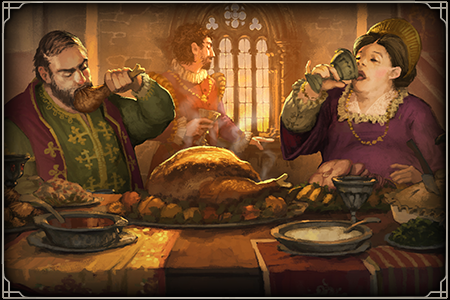

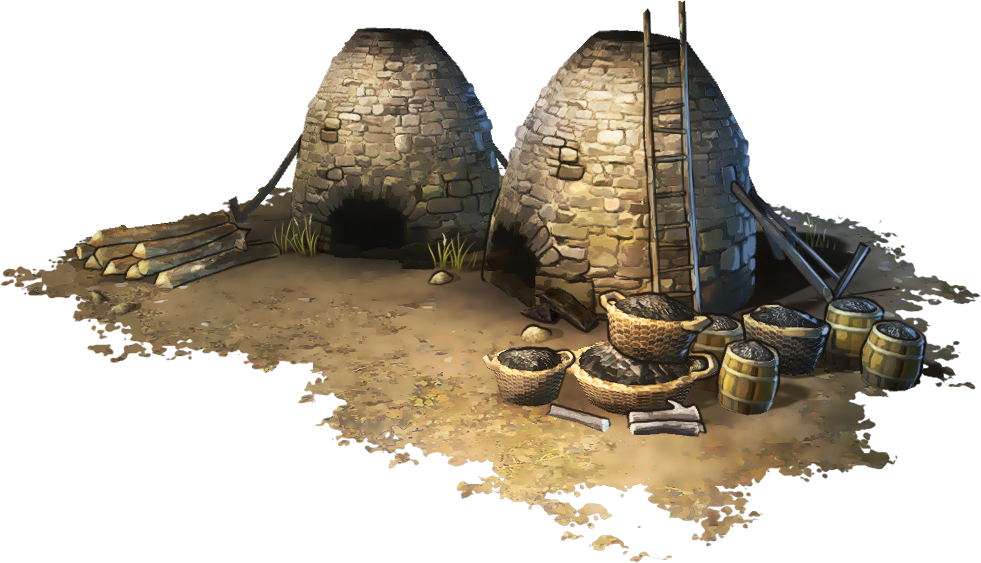
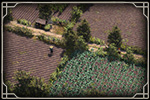
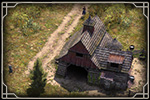
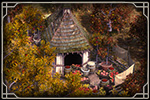
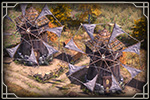
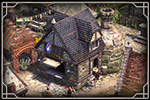
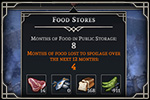
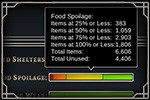
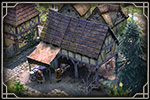
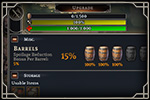
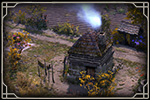
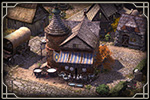
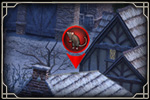
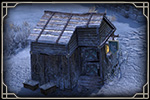
 Buildings
Buildings